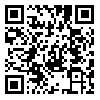Volume 10, Issue 3 (Summer-In Press 2024)
JCCNC 2024, 10(3): 0-0 |
Back to browse issues page
Download citation:
BibTeX | RIS | EndNote | Medlars | ProCite | Reference Manager | RefWorks
Send citation to:



BibTeX | RIS | EndNote | Medlars | ProCite | Reference Manager | RefWorks
Send citation to:
Pangandaman H K, Mukattil N P, Lambayong J H C, Mai-Alauya S A, Ali N A, Salve M M, et al . Exploring the Ethical Dilemma: A Qualitative Study on the Practice of Mercy Killing among Muslim Maranao Nurses in the Critical Care Setting. JCCNC 2024; 10 (3)
URL: http://jccnc.iums.ac.ir/article-1-548-en.html
URL: http://jccnc.iums.ac.ir/article-1-548-en.html
Hamdoni K. Pangandaman * 
 1, Nursidar P. Mukattil2
1, Nursidar P. Mukattil2 
 , Joy Hope C. Lambayong3
, Joy Hope C. Lambayong3 
 , Sittie Aina Mai-Alauya4
, Sittie Aina Mai-Alauya4 
 , Norhanie A. Ali4
, Norhanie A. Ali4 
 , Mardalyne M. Salve2
, Mardalyne M. Salve2 
 , Samiel P. Macalaba4
, Samiel P. Macalaba4 
 , Abolbashar M. Mangontawar4
, Abolbashar M. Mangontawar4 
 , Norhanie A. Lininding4
, Norhanie A. Lininding4 
 , Iman U. Matumadi4
, Iman U. Matumadi4 


 1, Nursidar P. Mukattil2
1, Nursidar P. Mukattil2 
 , Joy Hope C. Lambayong3
, Joy Hope C. Lambayong3 
 , Sittie Aina Mai-Alauya4
, Sittie Aina Mai-Alauya4 
 , Norhanie A. Ali4
, Norhanie A. Ali4 
 , Mardalyne M. Salve2
, Mardalyne M. Salve2 
 , Samiel P. Macalaba4
, Samiel P. Macalaba4 
 , Abolbashar M. Mangontawar4
, Abolbashar M. Mangontawar4 
 , Norhanie A. Lininding4
, Norhanie A. Lininding4 
 , Iman U. Matumadi4
, Iman U. Matumadi4 

1- Mindanao State University, Main Campus, Marawi City, Philippines. , hamdoni.pangandaman@msumain.edu.ph
2- Mindanao State University, Sulu Campus, Jolo, Sulu, Philippines.
3- Christian University of Thailand, Khlong Chinda, Nakhon Pathom,Thailand.
4- Mindanao State University, Main Campus, Marawi City, Philippines.
2- Mindanao State University, Sulu Campus, Jolo, Sulu, Philippines.
3- Christian University of Thailand, Khlong Chinda, Nakhon Pathom,Thailand.
4- Mindanao State University, Main Campus, Marawi City, Philippines.
Abstract: (348 Views)
Background: The practice of mercy killing, also known as euthanasia or assisted suicide, is a contentious and morally complex issue in healthcare. Understanding the ethical dilemmas related to mercy killing within specific religious communities such as Maranao Muslims can provide valuable insights into the intersection of faith, culture, and healthcare decision-making.
This study aimed to explore the practice of mercy killing among Muslim Maranao nurses in the critical care setting.
Methods: A qualitative research design based on descriptive phenomenology and criterion sampling was used to select ten (10) Muslim Maranao nurses, with at least five years of working experience in intensive care units in the southern Philippines. In-depth semi-structured face-to-face interviews were conducted with the participants, and colaizzi's thematic analysis was employed to analyze the data.
Results: Thematic analysis revealed three main themes with three corresponding sub-themes: religious beliefs (Islamic teachings, religious duties, and moral responsibility), cultural norms (community values, stigma and taboo, sense of identity), and professional ethics (duty to the patient, team collaboration, and ethical considerations).
Conclusion: The perspectives of Muslim Maranao nurses on mercy killing are strongly influenced by their religious beliefs, cultural norms, and professional ethics. Islamic teachings guide their rejection of mercy killing, emphasizing compassionate care and respect for the natural course of life. Family and community values, fear of social judgment, and the preservation of cultural identity shape their perspectives. Professional ethics highlight their commitment to patient well-being, autonomy, and collaborative decision-making. Culturally sensitive and ethically sound healthcare practices are essential, and ongoing dialogue, education, and policy development are needed to address the complexities surrounding mercy killing within specific cultural and religious contexts.
This study aimed to explore the practice of mercy killing among Muslim Maranao nurses in the critical care setting.
Methods: A qualitative research design based on descriptive phenomenology and criterion sampling was used to select ten (10) Muslim Maranao nurses, with at least five years of working experience in intensive care units in the southern Philippines. In-depth semi-structured face-to-face interviews were conducted with the participants, and colaizzi's thematic analysis was employed to analyze the data.
Results: Thematic analysis revealed three main themes with three corresponding sub-themes: religious beliefs (Islamic teachings, religious duties, and moral responsibility), cultural norms (community values, stigma and taboo, sense of identity), and professional ethics (duty to the patient, team collaboration, and ethical considerations).
Conclusion: The perspectives of Muslim Maranao nurses on mercy killing are strongly influenced by their religious beliefs, cultural norms, and professional ethics. Islamic teachings guide their rejection of mercy killing, emphasizing compassionate care and respect for the natural course of life. Family and community values, fear of social judgment, and the preservation of cultural identity shape their perspectives. Professional ethics highlight their commitment to patient well-being, autonomy, and collaborative decision-making. Culturally sensitive and ethically sound healthcare practices are essential, and ongoing dialogue, education, and policy development are needed to address the complexities surrounding mercy killing within specific cultural and religious contexts.
Type of Study: Research |
Subject:
General
Received: 2023/10/31 | Accepted: 2024/04/21 | Published: 2024/05/21
Received: 2023/10/31 | Accepted: 2024/04/21 | Published: 2024/05/21
Send email to the article author
| Rights and permissions | |
 |
This work is licensed under a Creative Commons Attribution-NonCommercial 4.0 International License. |
